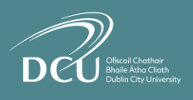About Financial Mathematics in Dublin City University
Why do this course?
The analysis of financial phenomena relies on a firm mathematical foundation. You will especially need to understand how numerical systems can persistently undergo change and how to handle mathematically the randomness which is in-built in the financial system. In Years One and Two, you will study several branches of mathematics, especially probability, statistics, and advanced calculus. You will also develop your understanding of economics, accounting and computer programming, and be introduced to applications of mathematics in finance.
In Year Three, you will start to study how random processes can develop over time, and apply these mathematical methods to examine how financial phenomena can evolve. You’ll also learn how to employ sophisticated statistical techniques that are used to investigate large quantities of financial data. Other modules you’ll study will introduce the valuation of financial products. You'll participate in an INTRA work placement in second semester.
In Year Four, you'll study high-level modern probability, and then apply it to design and price complex financial products such as derivatives and swaps, as well as developing cutting-edge and data-driven models of the stock market. Portfolio management and investor behavior are also investigated in order to quantify and manage risk. The mathematical techniques you will master will range from the highly theoretical to the highly practical. Some of these will require large scale computer simulations which are needed to reliably price the most exotic financial securities.
Academic qualification equivalents
- Standard 12 through a recognised awarding body with average grades of 80% or above. Please note an average of all subjects studied will be taken. Mathematics and English must be included.
English language requirements (one of the below):
- IELTS for Undergraduate Programmes: Overall score of 6.5 or above, with no less than 6.0 in any one skill.
- TOEFL: Total Score of 92. DCU Business School additionally requires all section scores 21 or above.
- PTE Academic: Minimum score of 63, with no section score below 59
Dublin City University Highlights
| University Type |
Public University |
| Campus Setting |
Urban |
| Establishment Year |
1975 |
| No. of Campuses |
3 |
| No. of Residence Halls |
3 |
| International students |
2,337
71% in UG, 29% in PG courses |
| Research Funding |
~35 million EUR |
| Cost of Attendance |
~22,500 EUR |
| Applications Accepted |
Online/Offline |
| Work-Study |
Available |
| Intake Type |
Semester wise |
| Mode of Program |
Full time and online |
Dublin City University Average Tution fees And Other Expenses
Foreign students who wish to enrol at Dublin City University must be aware of the associated costs in order to budget appropriately and apply for scholarships when needed. The tuition costs for well-known programmes and other expenses related to studying in Ireland are covered below.
Tuition Fee for Dublin City University
Here are the details of the UG and PG fees for international students planning to study at any of the following faculties.
| Programs |
UG (EUR) |
PG (EUR) |
| Engineering |
15,000 |
17,000 |
| Business |
14,000 |
16,000-19,000 |
| Humanities |
15,000 |
15,000 |
| Science |
15,000 |
15,000 |
| Education |
12,600 |
13,700 |
Dublin City University Cost of Living
The cost of living here includes monthly expenses an international student would require to study at Dublin City University:
| Expense |
Monthly Cost (EUR) |
| Rent (On-campus) |
692-1216 |
| Rent (Off-campus) |
850-1300 |
| Food |
250 |
| Travel |
132 |
| Books and Materials |
75 |
| Medical |
45 |
| Miscellaneous |
178 |
| Total |
Approximately 2,222 |
